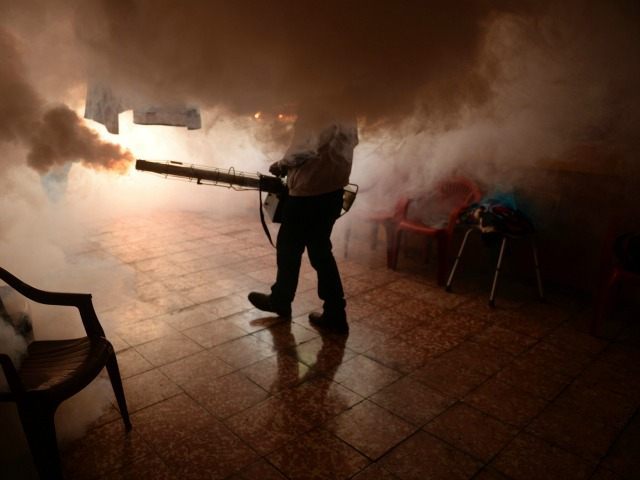The Zika virus outbreak in Latin America has governments on the other half of the globe panicking. From Singapore to Taiwan to Russia, governments are taking precautionary measures to stop the virus, which experts have linked to significant neurological defects in infants, from spreading out of tropical regions across the continent.
Zika is transmitted through mosquito bites from Aedes Aegypti, a mosquito that lives in warm, humid climates, and transmits Dengue fever, Yellow Fever, and Chikungunya virus. According to the Centers for Disease Control and Prevention (CDC), the mosquito can be found worldwide.

Several nations in warmer Asian climates have begun to react to the Zika outbreak in Latin America so far, which is believed to have triggered over 4,000 cases of microcephaly in infants. Microcephaly is a condition in which infants’ skulls are smaller than their brains, causing severe neurological damage. The island of Singapore, which is striving to eliminate Dengue fever among its population, has begun to introduce new preventative measures to keep pregnant women safe (Zika is not typically considered a fatal illness among adults).
“There is a high risk of subsequent local transmission, as the Aedes mosquito vector is present here. As such, the virus may become endemic in Singapore,” Singapore’s top health agency announced this week. The government will begin an awareness campaign, discouraging travel to Latin America and educating citizens on how to avoid mosquito bites. Althought minimal evidence exists of human-to-human Zika transmission, Singapore officials will limit contact with those testing positive for the virus at hospitals. One official described the arrival of Zika to the island as “inevitable.”
Asia One notes that officials have documented Zika cases in Cambodia, Indonesia, the Philippines, Malaysia, and Thailand. At least one Thai case has surfaced in Taiwan, where authorities diagnosed a Thai national with Zika on Tuesday after his arrival to Taiwan on a work visa.
Elsewhere in Asia, the Maldives has diagnosed at least one case: a Finnish tourist who appeared to have contracted the virus in the Maldives ast year. As he did not exhibit severe symptoms, he returned home. At least one patient contracted the virus in Malaysia in May of last year, as well.
An average of 80 percent of Zika patients have no outward symptoms of having contracted the virus. Its ability to live inside human beings undiscovered is particularly dangerous for pregnant women who may not know they have the virus until they give birth to a child with severe neurological defects.
Asia’s tropical nations are not the only ones working to keep Zika from entering their borders. Speaking on Thursday, Russian President Vladimir Putin instructed his health minister to pay attention to “some filth spreading from Latin America,” beginning an awareness campaign for Russian travelers. “Of course, mosquitoes do not fly across the ocean, but infected people can fly and do. The virus has already appeared in Europe,” Putin told reporters.
The CDC notes that Samoa is also under risk of a Zika outbreak.
In response to the outbreak, Brazil, Colombia, and El Salvador have warned women to avoid becoming pregnant as much as possible until authorities can conclusively curb the Aedes aegypti population or find a cure for Zika. El Salvador went as far as to caution delaying pregnancy for two years if possible.

COMMENTS
Please let us know if you're having issues with commenting.